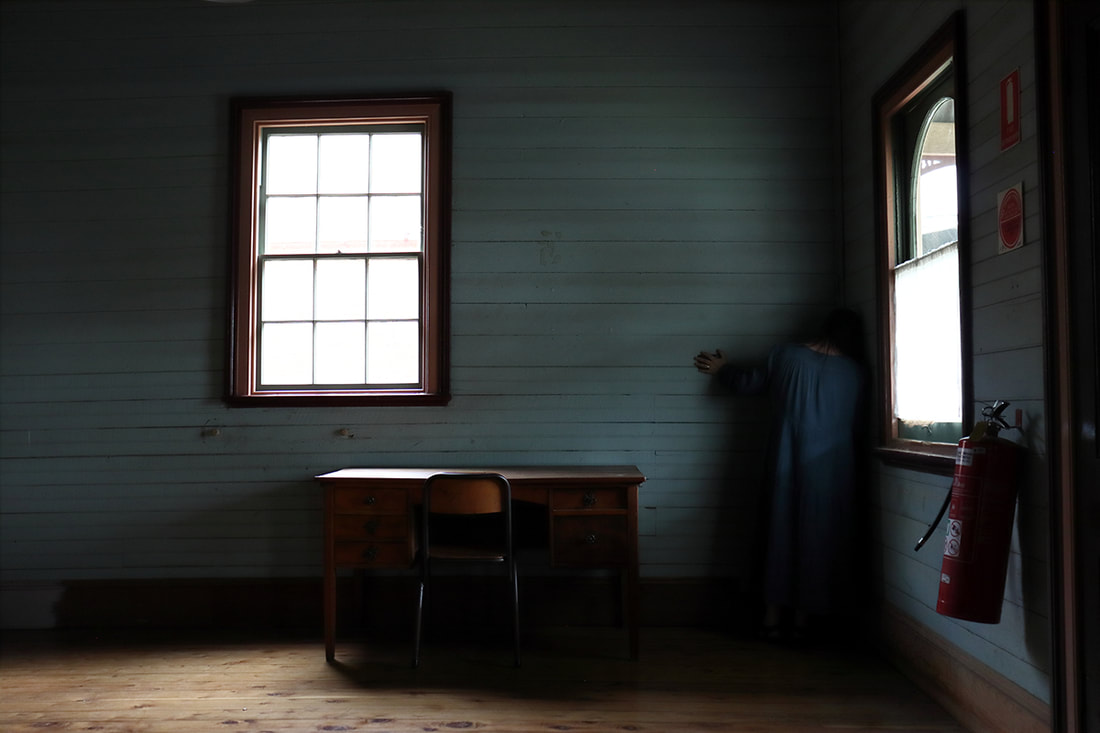|
Listening to my footsteps, I walk through the hall and from one room to the next. I think about the thousands of footsteps that have traversed through this building since its opening in 1880. I set up my tripod (a side of the road rescue) and photograph and video some ideas around presence in this place.
Women were forbidden to enter. I know back then, it was only men allowed here in the bar, but I still wonder if my great great grandmother Maryanne ever stepped foot in The Railway Hotel. We are shown the small room for women in The Railway Hotel. I imagine her daughter-in-law Edie, my great grandmother in Yee Lee’s general store (owned and operated by Wong War Lai and later by his son) down the road. I read Juanita Kwok’s 2019 paper Wonderful Wellington: The Longevity of the Chinese Community in Wellington, New South Wales. I think about the descendants of the Chinese diaspora living today, who like me, and my children may too be sixth or seventh generation Australian from these parts. It's our last day here at the Residency. It has been wonderful to share this time with Therese. She’s shared with me some of her responses to researching Jessie Hickman, The Lady Bushranger. Jessie would have been eighteen when my Granny was born. I haven’t managed to return to reading the book I bought with me - Rebecca Wilson’s Kate Kelly, the true Story of Ned Kelly’s little sister – giving air to Kate’s story from this male-oriented period of history. Kate was found dead in a waterhole further west near Forbes in 1898 ten years before my Granny was born. Later I stand looking over Burrendong Dam where my Granny’s ashes were spread and her sibling’s graves rest under the water. The Ironbark Arts Residency Program is co-produced by Orana Arts Inc and the STAA. Comments are closed.
|
AuthorNic Mason Archives
April 2023
Categories |

 RSS Feed
RSS Feed